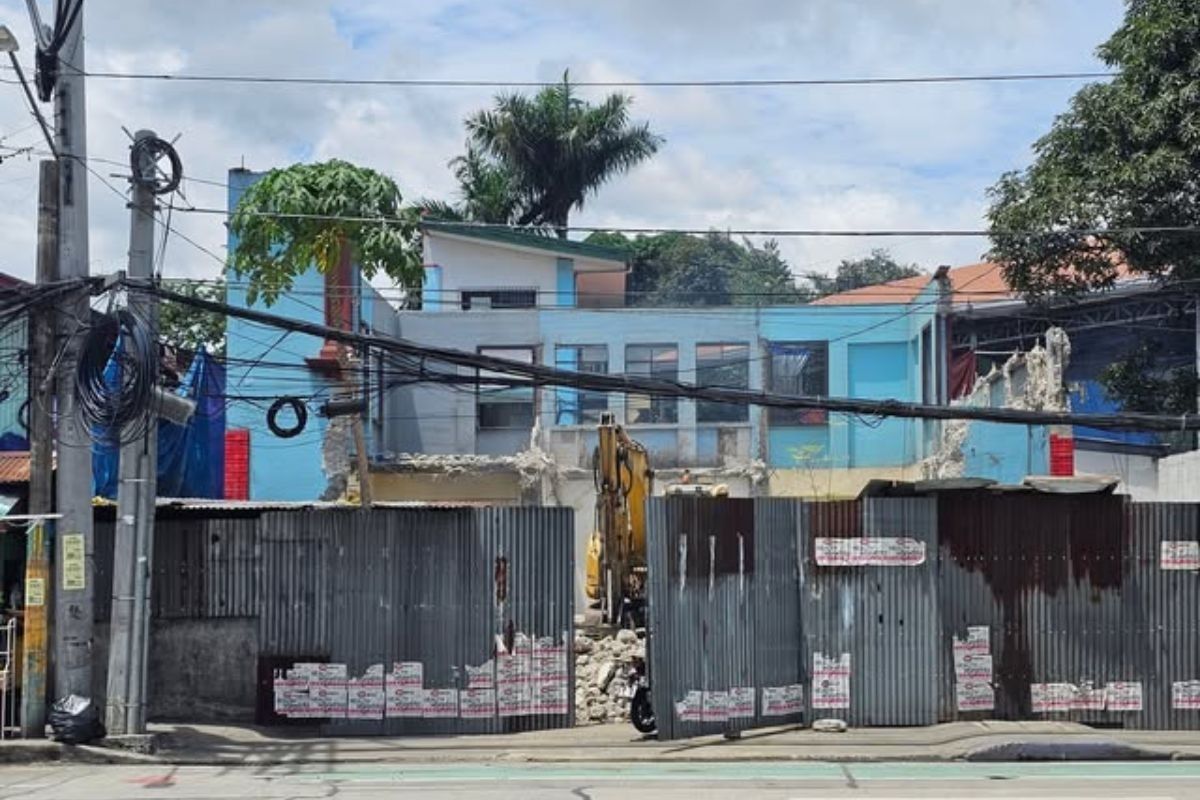
Upgrade to High-Speed Internet for only ₱1499/month!
Enjoy up to 100 Mbps fiber broadband, perfect for browsing, streaming, and gaming.
Visit Suniway.ph to learn
MANILA, Philippines — The Marcos administration will assess the economic impact of the P200 wage hike bill approved by the House of Representatives days before the adjournment of Congress.
Claire Castro, Presidential Communications undersecretary, said the government would take into account the concerns of stakeholders and all aspects of the measure, which is being pushed by labor groups but opposed by business chambers.
“We will look at the economic implications of these and how to resolve these with the opinion of the wage boards since the wage boards are also the creations of the Congress,” Castro quoted President Marcos as saying at a press briefing yesterday.
Asked whether Marcos would sign into law the wage hike bill if it is sent to him, Castro said: “Its economic implications will be looked into, but the President wants to give what is appropriate and more beneficial to Filipino workers.”
Voting 171-1 with no abstention, the House of Representatives passed on final reading last Wednesday House Bill 11376, which seeks to provide a P200 across-the-board wage hike – the first approved legislated wage hike in 36 years.
Labor groups hailed the move, saying it would help lift workers out of poverty, but business chamber groups claimed the measure would lead to higher costs of labor, goods and services.
Days before the passage of the wage hike bill at the House, Marcos met with members of the Trade Union Congress of the Philippines at Malacañang and assured them that the government would protect the rights of workers. The P200 wage hike bill was not mentioned in the public statements issued by the President and the TUCP after the meeting.
The Senate approved a wage hike bill last year but its version only seeks to raise workers’ pay by P100.
Unless they agree to adopt a common version of the bill, the Senate and the House have until June 13 to reconcile the differences of their measures, ratify the reconciled legislation and submit it to Malacañang for the President’s signature.
During last month’s Labor Day celebration, Marcos cited the need to study wage increase proposals and their effect on the economy.
“With regard to the discussion on wage hike, it is nice to hear sweet promises, but these have an effect on the growth of businesses, jobs and the economy. So we need to study them carefully,” he said in a speech during the 123rd Labor Day celebration. “We hear the call of our workers for better wages and assure you that your concerns are being addressed through the Regional Tripartite Wages and Productivity Boards. The government stands firm in its commitment to protecting and advancing workers’ welfare while promoting inclusive economic development.”
Biz groups flag risks
Business groups yesterday raised concern over the House of Representatives’ approval of the proposed P200 across-the-board minimum wage hike, warning that it could drive up the prices of goods and deter investments needed for job creation.
“The PCCI (Philippine Chamber of Commerce and Industry) views with concern the act of Congress to legislate a wage hike on two fronts,” the country’s largest business organization said in a statement yesterday.
“The wage hike leads to higher labor costs, consequently resulting in higher costs of goods and services and inflation,” the groups said.
Those working in the informal sector, which account for about 50 to 60 percent of the population, would be hurt the most by the higher prices, PCCI said.
“The inflationary effect will erode purchasing power, negating the wage hike’s intended benefit. This will bear down more on workers in the informal sector who are not bound by the minimum wage law,” it said.
Presidential veto?
Congressmen warned of a likely presidential veto.
House of Representatives deputy minority leader and ACT Teachers party-list Rep. France Castro and Rep.-elect Antonio Tinio warned President Marcos against vetoing the measure, saying such an action would isolate him from the people.
“If President Marcos vetoes this measure, he will be further isolating himself from the Filipino people. It will be a clear message that his administration stands with big business and not with workers who are struggling to make ends meet,” Tinio said.
Castro and Tinio said in a joint statement that a P200 wage hike “will not answer the legitimate call of workers for a humane salary enough to give them decent living,” noting that laborers have called for a P1,200 per day living wage.
Tinio described the P200 wage hike as a compromise that does not fully address the economic hardships faced by workers.
“While we welcome this measure, it is still far from enough. Workers have been demanding a living wage for years, and the P200 increase is just a small step toward that goal,” Tinio said.
Cavite 1st District Rep. Ramon Jolo Revilla III, the bill’s principal author, said the measure is a long-overdue recognition of the vital role of workers in nation-building.
Revilla thanked Speaker Martin Romualdez for backing the measure, which he described as a product of unity and compassion in the House of Representatives.
Despite the victory, Revilla was quick to acknowledge that the fight for a living wage is far from over.
Akbayan party-list Rep. Perci Cendaña said the approval is “a resounding and historic triumph for Filipino workers in the halls of Congress, 36 years in the making.”
“This is a long awaited victory. The last legislated wage hike was in 1989, but the workers did not surrender and continue the fight for a decent and humane salary,” Cendaña said.
According to TUCP, five million of the country’s 30.8 million daily minimum wage earners stand to benefit from the approval of the legislated across-the-board wage hike in the private sector.
House Deputy Speaker Democrito Mendoza, TUCP party-list representative, presided over Wednesday’s plenary session that saw the approval of HB 11376.
“This will lift over five million minimum wage earners and their families out of poverty and bring the country closer to realizing our fundamental right to a living wage enshrined in our Constitution nearly four decades ago,” Mendoza said.
“Speaker Romualdez has accomplished what no other Speaker in the past 36 years has dared to do – shepherd such a legislated wage hike,” he added, noting the last time a legislated wage hike was adopted was in the 8th Congress in 1989.
The TUCP has called on the Senate and House leadership to immediately convene the bicameral conference committee to reconcile their respective versions – P100 from the Senate and P200 from the House – and produce a final enrolled bill with utmost urgency and resolve.
“I appeal to all my fellow bicam conferees, my counterparts in the Senate and my colleagues in the House, let us get this done and get it done now. We are way past the stage of whether we will pass a legislated wage hike, but how much that wage hike will be,” Mendoza said.
Several labor groups echoed his call.
“Time is running out. With only three session days left next week, Congress must act swiftly and decisively to produce an enrolled bill for President Marcos’ signature,” the National Wage Coalition said in a statement.?The NWC is comprised of the Bukluran ng Manggagawang Pilipino, Kilusang Mayo Uno, Nagkaisa! Labor Coalition and the TUCP.?– Jose Rodel Clapano, Delon Porcalla, Rhodina Villanueva, Marc Jayson Cayabyab, Louella Desiderio

 1 day ago
4
1 day ago
4



